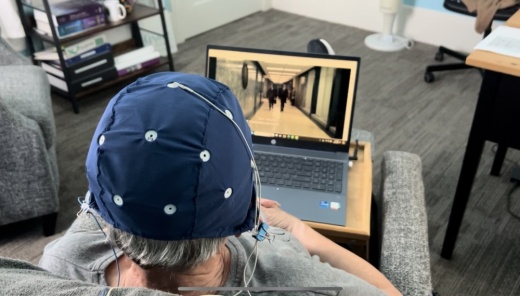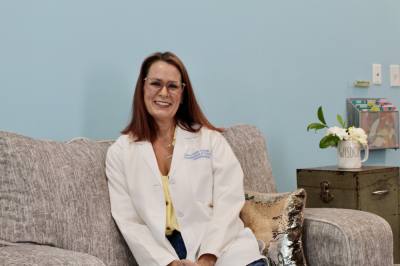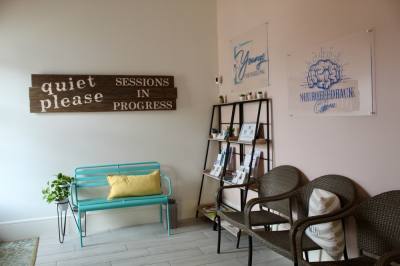“I'm by nature a nurturer. So you know, I played that peacemaker role, the counselor role in my friend groups growing up. So it just kind of was natural,” Youngs said.
The backstory
Youngs went on to earn a degree in health and business as well as education.
Today she practices neurofeedback, a mental health treatment method where clients respond to a display of their own brainwaves. Youngs founded Neurofeedback of Cypress in 2022 after spending time in the field as a special education teacher and high school counselor.
Wanting to specialize in young adult mental health care, Youngs became a special education teacher where she worked with students with ADHD and emotional disabilities. She later became a counselor for Cypress Creek High School, where she worked for eight years.
“I loved it, but then just recognized that we were at a point where our students needed more than what a school counselor is allotted time-wise, and that broke my heart,” Youngs said. “Since I couldn't change the system, I decided to change how I was assisting and went into private practice.”
Youngs said having children who struggled with ADHD is what led her to practice neurofeedback.
“It's drug-free. It's non-invasive. The vast majority of people respond to it. About 80%-85% respond to neurofeedback, so why aren't we doing that first before we start looking at drugs?” Youngs said.
A different approach
Neurofeedback of Cypress offers clients an alternative approach to medication for anyone struggling with ADHD, ADD, anxiety or depression.
With a holistic approach, Neurofeedback of Cypress offers clients a personalized treatment plan tailored to each individual's needs.
Starting with a 15-minute free consultation, clients are encouraged to discuss their mental health and well-being in detail and ask any questions they have.
Once a counselor assesses the client, there are several approaches Neurofeedback of Cypress can recommend after undergoing a quantitative electroencephalography, where the brain is mapped by certified counselors to analyze the client’s brainwave activity.
After the exam, a full report is reviewed by several mental health specialists.
From there, Neurofeedback of Cypress offers the following treatment methods:
- Neurofeedback: Typically performed during 45-minute sessions, the brain is retrained using operant conditioning power training. This method uses reward and punishment to shift the brain into a more efficient state.
- Photobiomodulation: These sessions incorporate red light therapy and are recommended to individuals struggling with depression, sleep or cognitive issues.
- Heart rate variability: These sessions allow clients to learn to practice rhythmic breathing and are recommended to individuals with anxiety and sleep issues.
“Find somebody who has a BCN, and ask questions,” she said.
- 16712 Huffmeister Road, Ste. 200C, Cypress
- www.nfbofcypress.com








